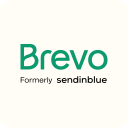ClickFunnels vs Leadpages: Which landing page builder is right for you?
- 01ClickFunnels vs Leadpages: overview
- 02What's the difference between ClickFunnels and Leadpages?
- 03ClickFunnels pros and cons
- 04Leadpages pros and cons
- 05ClickFunnels compared to Leadpages
- 06Leadpages compared to ClickFunnels
- 07Features comparison
- 08ClickFunnels vs Leadpages: Which is the best for your business?
- 09Promotions on Email Marketing software
- 10Alternatives to ClickFunnels & Leadpages
Access up to $197 savings on ClickFunnels & $19 on Leadpages
Access up to $197 savings on ClickFunnels & $19 on Leadpages
A robust landing page builder is essential for creating effective online marketing campaigns, as it plays a pivotal role in capturing leads and converting them into customers. Two of the leading options in this space are ClickFunnels and Leadpages. While both platforms are designed to help you create high-converting landing pages and sales funnels, they come with distinct features and capabilities that can significantly impact your marketing efforts.
In this article, we'll conduct a comprehensive comparison of ClickFunnels vs Leadpages. Despite their shared goal of facilitating effective landing page creation, these platforms offer unique functionalities and tools that cater to different user preferences and business needs. By understanding the differences and strengths of each platform, you'll be better equipped to make an informed decision on which one is the best fit for your specific marketing objectives. So, let's dive into the details of ClickFunnels and Leadpages to help you make the right choice for your business.
ClickFunnels vs Leadpages: overview
ClickFunnels and Leadpages are two prominent players in the realm of online marketing and landing page creation, and each brings its own unique strengths to the table.
ClickFunnels is renowned for its versatility and all-in-one marketing funnel capabilities. It excels at creating complete sales funnels, making it an ideal choice for businesses looking to design and manage multi-step marketing campaigns. With its intuitive drag-and-drop builder and a wide range of pre-designed templates, ClickFunnels simplifies the process of building high-converting landing pages and sales funnels. Leadpages, on the other hand, is known for its simplicity and user-friendly interface. It specializes in creating landing pages that are optimized for conversions. Leadpages' focus on lead generation and lead capture is its strong suit, making it an excellent choice for businesses primarily interested in creating appealing, high-converting standalone landing pages.
To make the right choice between ClickFunnels and Leadpages, you should consider your specific marketing objectives and the complexity of your campaigns. If you require a comprehensive solution for building complete sales funnels and are interested in maximizing revenue through upselling and downselling, ClickFunnels is the way to go. However, if your primary goal is to create optimized landing pages for lead generation and you value simplicity and ease of use, Leadpages may be the better fit for your needs.
What's the difference between ClickFunnels and Leadpages?


When it comes to choosing between ClickFunnels and Leadpages, it's essential to delve deeper into their differences to make an informed decision that aligns with your specific needs and goals.
ClickFunnels and Leadpages may share some commonalities, such as user-friendliness and relatively similar page builders, but their primary functionalities set them apart. Leadpages is primarily a landing page builder, ideal for businesses looking to create high-converting standalone landing pages quickly. Its simplicity and focus on conversion rate optimization (CRO) make it a solid choice for those who prioritize lead generation.
On the other hand, ClickFunnels offers a much broader and comprehensive set of tools, making it a powerhouse for businesses aiming to boost online sales and manage the entire sales funnel process. With ClickFunnels, you can do everything Leadpages can do and much more. It is designed to handle the complete sales journey, from creating landing pages to building complex sales funnels. It provides features like integrated shopping carts, exit-intent pop-ups, membership site creation, one-click upsells, and seamless integration with popular payment platforms, streamlining your e-commerce operations.
While it is possible to achieve some of ClickFunnels' capabilities using Leadpages and various third-party integrations, it can be a laborious and potentially costly process. Moreover, functionalities like email marketing would require external tools when using Leadpages, which may not be as seamless as ClickFunnels' all-in-one approach.
However, Leadpages isn't without its merits. It excels in offering CRO-focused features, such as A/B testing and analytics, and its simplicity makes it an attractive option for those who want a streamlined experience.
Your choice between ClickFunnels and Leadpages should be guided by your specific business requirements and budget considerations. If you seek a comprehensive suite to enhance online sales and are willing to invest in a robust solution, ClickFunnels is the clear frontrunner. Conversely, if budget constraints or existing tools for specific functions like email marketing lead your decision-making, Leadpages can still be a valuable asset for creating high-converting landing pages.

1 month free on the Pro plan on ClickFunnels
Get 1 month free on the Pro plan on ClickFunnels and up to $197 savings with Secret.
ClickFunnels pros and cons
What are the advantages of ClickFunnels?
- Ease of use: ClickFunnels is known for its user-friendly interface and intuitive drag-and-drop editor, making it accessible to users with varying levels of technical expertise.
- Comprehensive funnel building: ClickFunnels allows you to create complete sales funnels from lead capture to sales conversion, making it a one-stop solution for online marketing.
- Templates and customization: It offers a wide range of professionally designed templates for various industries and purposes. You can also customize these templates to match your brand and unique needs.
- Integrated tools: ClickFunnels comes with a suite of integrated tools, including email marketing, payment processing, and affiliate management, which eliminates the need for third-party services and streamlines your operations.
- Split testing: The platform supports A/B split testing, allowing you to optimize your funnels for better conversion rates by testing different elements and strategies.
What are the disadvantages of ClickFunnels?
- Costly: ClickFunnels can be relatively expensive, particularly for small businesses and startups. There are cheaper alternatives available in the market.
- Limited blogging features: If content marketing and blogging are essential components of your marketing strategy, ClickFunnels may not be the best choice, as it lacks robust blogging capabilities.
- Learning curve: Despite its user-friendliness, ClickFunnels can still have a learning curve, especially for users new to funnel building and online marketing.
- Limited SEO control: ClickFunnels doesn't provide as much control over SEO optimization compared to dedicated website platforms, which can impact your organic search visibility.
- Reliance on ClickFunnels: Once you've built your funnels on ClickFunnels, it can be challenging to migrate them to other platforms if you ever decide to switch, potentially leading to vendor lock-in.
Compare ClickFunnels to other tools
Leadpages pros and cons
What are the advantages of Leadpages?
- User-friendly interface: Leadpages is known for its ease of use, making it accessible to users with varying levels of technical expertise. The intuitive drag-and-drop builder simplifies the landing page creation process.
- High-quality templates: It offers a wide variety of professionally designed templates optimized for conversion, covering various industries and use cases. These templates save time and effort in designing effective landing pages.
- Integration options: Leadpages integrates seamlessly with popular email marketing platforms, CRM systems, and other marketing tools, allowing you to sync your leads and data easily.
- Lead generation features: Leadpages specializes in lead generation, offering features like lead capture forms, pop-ups, and alert bars that can help increase your subscriber list and overall conversion rates.
- A/B testing: Leadpages includes A/B testing functionality, enabling you to optimize your landing pages by testing different elements and strategies for better conversion rates.
What are the disadvantages of Leadpages?
- Limited funnel building: Unlike some other platforms, Leadpages is primarily designed for creating standalone landing pages and does not offer the same level of funnel building capabilities as comprehensive tools like ClickFunnels.
- Less comprehensive marketing automation: While it offers basic automation features, Leadpages is not as robust in terms of marketing automation when compared to dedicated marketing automation platforms like ActiveCampaign or HubSpot.
- Blogging capabilities: Leadpages lacks robust blogging features, which may be a limitation if content marketing and blogging are significant aspects of your marketing strategy.
- Pricing tiers: Some users may find Leadpages' pricing to be relatively high for the features it offers, especially when compared to alternative landing page builders.
- Limited customization options: While Leadpages provides customization options, it may not offer the same level of design flexibility and advanced customization as some other platforms, potentially limiting creativity in page design.
Compare Leadpages to other tools
ClickFunnels compared to Leadpages
ClickFunnels and Leadpages are both popular tools for creating landing pages and marketing funnels. ClickFunnels is a comprehensive solution that excels in building complete sales funnels, offering features like integrated shopping carts, one-click upsells, and membership site creation.
Leadpages, on the other hand, is focused on creating high-converting standalone landing pages with its user-friendly interface and a wide range of templates. While ClickFunnels is ideal for businesses aiming to manage the entire sales process, Leadpages is a solid choice for those primarily interested in lead generation.
Is ClickFunnels better than Leadpages?
Determining whether ClickFunnels is better than Leadpages depends on your specific needs. ClickFunnels is a powerful all-in-one platform, ideal for businesses seeking comprehensive funnel building capabilities and advanced sales features. It excels at managing the complete sales process and offers integrated tools like shopping carts and membership site creation.
In contrast, Leadpages specializes in creating high-converting standalone landing pages, making it suitable for businesses primarily focused on lead generation. Your choice should consider factors like your marketing objectives, budget, and the complexity of your campaigns. Both platforms have their merits, so it's essential to align your choice with your unique requirements.
What is ClickFunnels best used for?
ClickFunnels is best used for creating and managing comprehensive sales funnels. It's an ideal platform for businesses and entrepreneurs aiming to streamline the entire sales process, from lead generation to conversion.
ClickFunnels offers tools for designing landing pages, upsells, downsells, and even membership sites. It's particularly valuable for e-commerce businesses, coaches, and digital marketers looking to optimize revenue through advanced features like integrated shopping carts and one-click upsells. ClickFunnels empowers users to build highly customized and effective marketing funnels, making it a top choice for those seeking to maximize sales and conversions in their online marketing efforts.
Can ClickFunnels replace Leadpages?
ClickFunnels can potentially replace Leadpages, but it depends on your specific needs. ClickFunnels offers a broader range of functionalities, including comprehensive funnel building capabilities and advanced sales features. If you require the ability to manage the complete sales process, integrate shopping carts, or create complex sales funnels, ClickFunnels might be a suitable all-in-one solution.
However, if your primary focus is on creating high-converting standalone landing pages and you prefer a simpler interface, Leadpages may still be a valuable tool. Consider your marketing goals and the level of sophistication required for your campaigns when deciding whether ClickFunnels can fully replace Leadpages.
Is ClickFunnels cheaper than Leadpages?
ClickFunnels and Leadpages have different pricing structures, making it challenging to definitively say which is cheaper. Leadpages generally offers lower entry-level pricing, making it a more budget-friendly option for those focused solely on landing page creation. In contrast, ClickFunnels’s pricing may appear more expensive, especially if you require its advanced funnel building and sales features.
However, ClickFunnels can potentially provide better value for businesses needing a comprehensive solution for marketing funnels. Ultimately, the cost comparison depends on your specific requirements and how you intend to utilize these platforms, so it's essential to evaluate pricing based on your unique needs.
Is there a better Email Marketing software than ClickFunnels?
While ClickFunnels offers a comprehensive suite for building marketing funnels and sales processes, it's worth exploring alternative software options to ensure you find the best fit for your specific needs.
There are several noteworthy alternatives to ClickFunnels in the realm of marketing funnel and landing page builders. These include Leadpages, Kartra, Unbounce, and Builderall, among others.
Selecting the ideal software depends on your unique business requirements, budget constraints, and marketing goals. If you prioritize an all-in-one solution with advanced funnel building capabilities, ClickFunnels may be a strong contender. However, exploring these alternatives can provide valuable insights and help you make a well-informed decision that aligns perfectly with your specific marketing and sales objectives.
1 month free on the Pro plan on ClickFunnels
Get 1 month free on the Pro plan on ClickFunnels and up to $197 savings with Secret.
Leadpages compared to ClickFunnels
Leadpages and ClickFunnels are both popular marketing tools, but they serve different purposes. Leadpages excels at creating high-converting standalone landing pages with its user-friendly interface and a wide range of templates. It is a solid choice for businesses primarily focused on lead generation.
In contrast, ClickFunnels offers a comprehensive suite for building complete marketing funnels, including sales funnels. It provides features like integrated shopping carts, one-click upsells, and membership site creation, making it an ideal choice for businesses looking to manage the entire sales process. The choice between Leadpages and ClickFunnels should depend on your specific marketing objectives and budget considerations.
Is Leadpages better than ClickFunnels?
Determining whether Leadpages is better than ClickFunnels depends on your specific marketing goals. Leadpages is excellent for creating high-converting standalone landing pages, making it a solid choice for businesses primarily focused on lead generation. It offers user-friendly features and a range of templates.
On the other hand, ClickFunnels excels at building complete marketing funnels, including sales funnels, with integrated shopping carts, one-click upsells, and more. If you require a comprehensive solution for managing the entire sales process, ClickFunnels may be the better choice.
What is Leadpages best used for?
Leadpages is best used for creating high-converting standalone landing pages and lead generation efforts. It shines in simplifying the process of designing and deploying landing pages with its user-friendly interface and an array of professionally designed templates. Whether you're looking to build landing pages for product launches, webinars, or opt-in forms, Leadpages is an excellent choice. It offers features like lead capture forms, pop-ups, and alert bars to help businesses grow their subscriber lists and enhance overall conversion rates.
If your primary marketing goal is to capture leads and drive conversions with visually appealing and effective landing pages, Leadpages is a valuable tool.
Can Leadpages replace ClickFunnels?
Leadpages can potentially replace ClickFunnels for businesses with specific needs. Leadpages excels in creating high-converting standalone landing pages and simplifies the process with its user-friendly interface and templates. However, it is not a complete funnel-building platform like ClickFunnels.
If your primary focus is on lead generation and you don't require the advanced funnel-building and sales features provided by ClickFunnels, Leadpages can be a cost-effective alternative. It's essential to assess your marketing objectives and the complexity of your campaigns to determine if Leadpages can fully replace ClickFunnels or if you need a more comprehensive solution for managing the entire sales process.
Is Leadpages cheaper than ClickFunnels?
Leadpages is generally considered more budget-friendly than ClickFunnels. Leadpages’s pricing offers lower-cost entry-level plans, making it an attractive option for businesses with budget constraints or those primarily interested in creating landing pages. In contrast, ClickFunnels can be perceived as more expensive, especially for users seeking its advanced funnel-building and e-commerce features.
However, the cost comparison should be based on your specific requirements and the value each platform offers. It's crucial to evaluate pricing relative to your marketing goals and the features you need to ensure you're getting the most cost-effective solution for your business.
Is there a better Website Builder software than Leadpages?
While Leadpages offers a user-friendly solution for creating landing pages and lead generation, it's essential to explore alternative landing page builder software options to ensure you find the best match for your specific needs.
Several noteworthy alternatives to Leadpages in the landing page builder arena include ClickFunnels, Unbounce, HubSpot, and GetResponse.
Choosing the ideal landing page builder depends on your unique business requirements, design preferences, and marketing objectives. If you prioritize simplicity and efficient landing page creation, Leadpages may be a strong contender. However, exploring these alternatives can provide valuable insights and help you make a well-informed decision that aligns perfectly with your specific landing page building and lead generation needs.
40% off the Standard plan for 1 month on Leadpages
Get 40% off the Standard plan for 1 month on Leadpages and up to $19 savings with Secret.
Features comparison
ClickFunnels and Leadpages are Equally Robust for A/B Testing

Both ClickFunnels and Leadpages shine when it comes to A/B testing, providing users with powerful tools to optimize their pages and funnels for maximum conversion rates. A/B testing allows marketers to create variations of their pages or funnels and experiment with different elements, such as headlines, images, or call-to-action buttons.
For example, with ClickFunnels, you can split-test different versions of your funnel steps to see which one performs better in terms of conversions. Similarly, Leadpages offers robust A/B testing features, enabling users to refine their landing pages for higher effectiveness.
Leadpages Outshines ClickFunnels in Robust Integration Capabilities
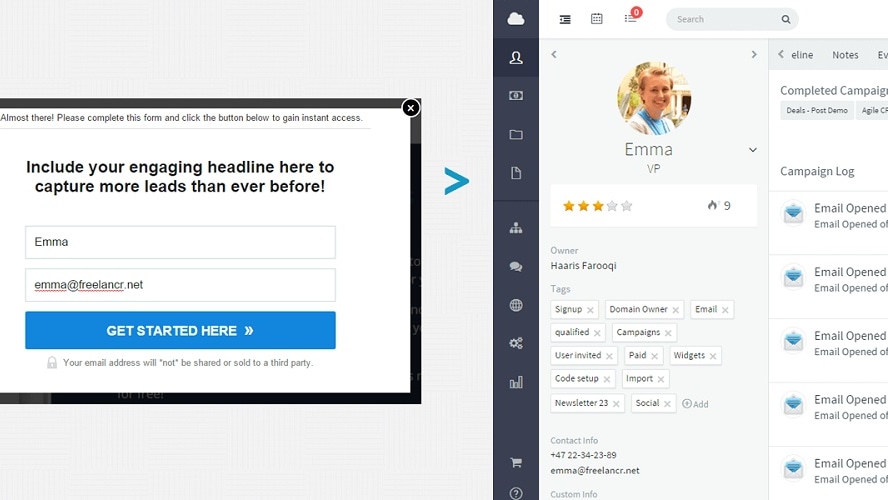
When it comes to integration capabilities, Leadpages exhibits a broader reach than ClickFunnels, making it a compelling choice for businesses seeking a versatile toolset. Leadpages supports an extensive range of third-party integrations, encompassing essential marketing tools such as Google Analytics, Facebook Ads, Salesforce, and Zapier. This wide array of connections empowers businesses with diverse needs to seamlessly incorporate their preferred solutions.
In comparison, ClickFunnels, while still offering robust integrations, falls slightly short of Leadpages in terms of quantity and diversity. Nevertheless, ClickFunnels remains adept at facilitating key integrations, including PayPal, Stripe, ClickBank, and compatibility with numerous CRMs and email marketing tools.
ClickFunnels Proves Best for Payment Processing Compared to Leadpages

ClickFunnels stands as a frontrunner in the realm of payment processing, offering seamless integration with a diverse range of payment gateways. This feature empowers entrepreneurs and businesses to effortlessly collect payments directly through their marketing funnels. With support for popular payment processors like PayPal, Stripe, and ClickBank, ClickFunnels simplifies the sales process, providing a holistic solution for revenue generation.
In contrast, Leadpages does not offer direct payment processing functionality. This distinction positions ClickFunnels as the superior choice for businesses seeking to streamline their sales processes and maximize revenue generation opportunities through efficient payment collection mechanisms. When considering the two platforms, the ability to integrate multiple payment gateways makes ClickFunnels an advantageous option for e-commerce and sales-focused businesses.
Leadpages’s Conversion-Boosting Templates Excel Ahead of ClickFunnels
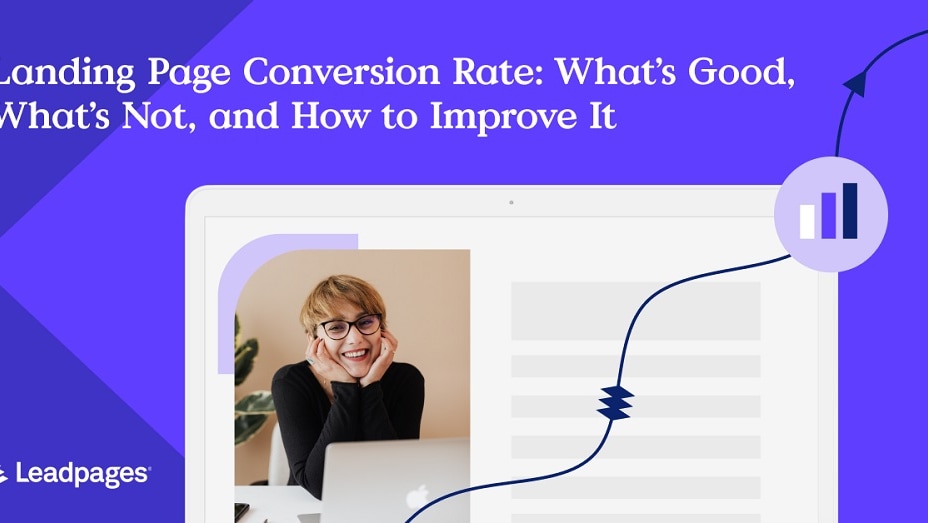
When it comes to templates, Leadpages outshines ClickFunnels with its extensive selection of conversion-optimized designs. Leadpages offers a diverse range of professionally crafted landing page templates that have a proven track record of converting visitors into customers. These templates are tailored to maximize conversion rates, making them a valuable asset for businesses seeking to drive results.
While ClickFunnels also provides templates, its primary focus is on funnel building rather than fine-tuned conversion optimization. As a result, Leadpages takes the lead in offering a broader array of templates dedicated to boosting conversions, making it an ideal choice for businesses aiming to create high-converting landing pages with ease.
ClickFunnels’s Email Marketing Automation Outshines Leadpages
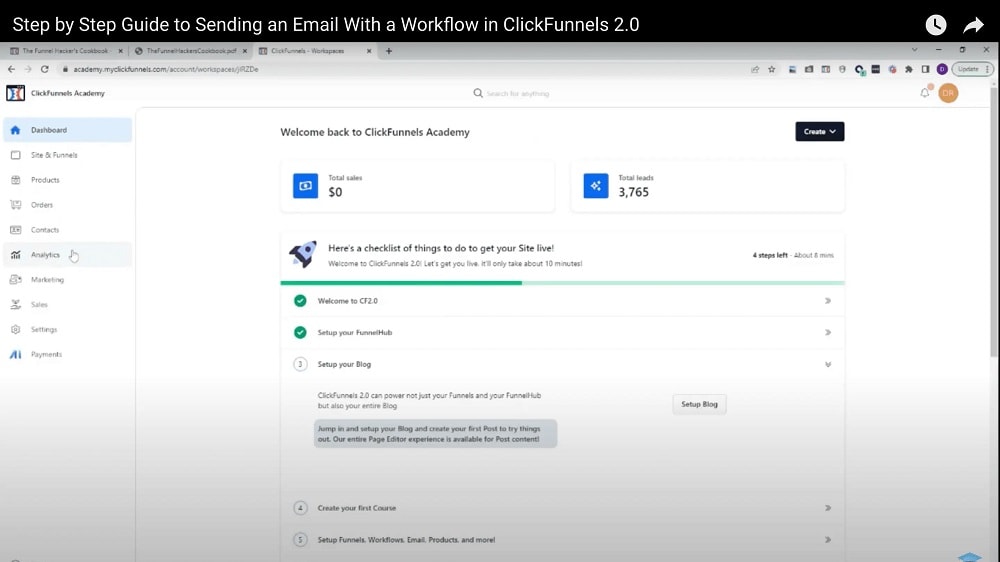
When it comes to email marketing automation, ClickFunnels takes the lead over Leadpages with its robust set of features. ClickFunnels provides a comprehensive email marketing tool that empowers users to execute targeted email campaigns with precision. Users can create email sequences, segment their email lists, and track the performance of their email marketing efforts.
For instance, ClickFunnels allows you to set up automated email sequences that nurture leads through a sales funnel. You can segment your subscribers based on their behavior and interactions, sending personalized and relevant content to different segments. ClickFunnels' email automation capabilities make it a powerful tool for businesses seeking to engage and convert leads effectively.
In contrast, Leadpages primarily focuses on landing page creation and lead generation, with more limited email marketing automation capabilities. Therefore, when it comes to email marketing automation, ClickFunnels excels ahead of Leadpages, offering a more comprehensive solution for businesses looking to optimize their email marketing strategies.
Leadpages Surpasses ClickFunnels in Analytics and Insights

Although both ClickFunnels and Leadpages provide analytics and reporting tools, Leadpages holds a slight advantage over ClickFunnels due to the depth of its analytical capabilities. Leadpages offers real-time analytics that provide actionable insights, enabling entrepreneurs to make informed decisions promptly.
For instance, Leadpages' analytics can track user behavior on landing pages, including metrics like click-through rates, conversion rates, and bounce rates. This granular data allows users to fine-tune their landing pages for better performance.
While ClickFunnels also provides analytics, its focus is primarily on funnel performance metrics. Leadpages' comprehensive analytics offer a broader understanding of page performance, making it a valuable tool for entrepreneurs looking to optimize their marketing efforts and landing pages effectively.
ClickFunnels Takes the Lead Against Leadpages for Ease of Use
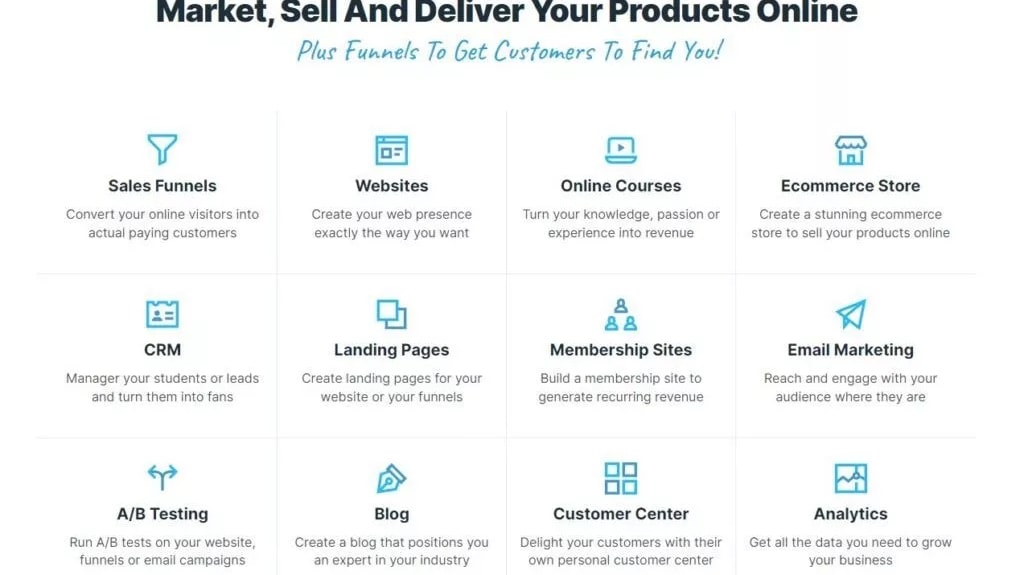
When it comes to the usability aspect of SAAS tools, ClickFunnels, known for its user-friendly approach, stands out as the more approachable platform for beginners. Its intuitive interface, streamlined layout, and wealth of premade templates simplify the journey for newcomers to the world of landing page creation. ClickFunnels also boasts a robust community and educational resources, offering valuable support.
On the other hand, Leadpages, while still user-friendly, may require a bit more time for novices to fully grasp due to its comprehensive feature set and slightly more complex setup. While both tools provide drag-and-drop functionality, ClickFunnels emerges as the more accessible choice, particularly for those new to the art of crafting landing pages.
Subscribe to our newsletters.
No FOMO here. Stay up-to-date on all the latest deals and news with our monthly newsletter straight to your inbox like 113,000+ entrepreneurs (+ Get 10% off on on our Premium Membership!)
ClickFunnels vs Leadpages: Which is the best for your business?
ClickFunnels is the best tool for you if:
- You want an all-in-one platform for creating and managing complex marketing funnels efficiently.
- Your business relies heavily on e-commerce and requires seamless payment processing integration.
- You seek a user-friendly interface and access to a variety of templates for landing pages and funnels.
- Advanced automation features and robust analytics are essential for your marketing strategy.
- You value a strong, supportive community and educational resources to maximize your funnel-building efforts.
Leadpages is the best tool for you if:
- You prioritize creating high-converting standalone landing pages for lead generation without the need for comprehensive funnels.
- Simplicity and ease of use are paramount, making it suitable for beginners and those seeking a streamlined experience.
- You want access to a wide range of professionally designed templates optimized for conversion.
- You require integration with various third-party marketing tools and prefer flexibility in your software stack.
- You aim to quickly and efficiently grow your subscriber list and enhance overall conversion rates through effective lead capture forms and pop-ups.

1 month free on the Pro plan on ClickFunnels
Get 1 month free on the Pro plan on ClickFunnels and up to $197 savings with Secret.
Alternatives to ClickFunnels & Leadpages
Promotions on Email Marketing software
Start saving on the best SaaS with Secret.
Secret has already helped tens of thousands of startups save millions on the best SaaS like ClickFunnels, Leadpages & many more. Join Secret now to buy software the smart way.














